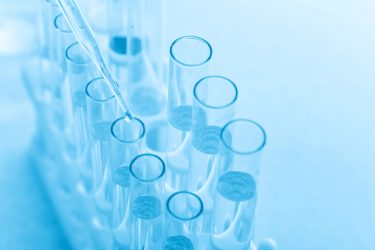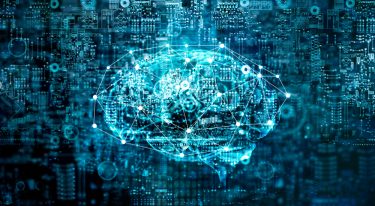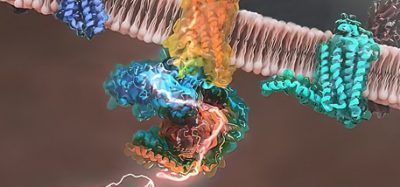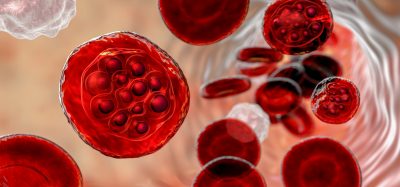Artificial intelligence in the world of drug discovery
Posted: 4 July 2019 | Victoria Rees (Drug Target Review) | 1 comment
Charlotte Walker-Osborn, a Partner and Head of Technology Sector (International) at global law-firm Eversheds Sutherland and a legal expert in technology law, explains some of the challenges and potential future of artificial intelligence (AI) in the field of drug discovery.

Research and development (R&D) can be a lengthy and costly process. However, pharmaceutical companies have recently begun to understand the importance and benefits of using AI in their work.
Walker-Osborn has advised companies from a legal perspective on using AI in their drug discovery processes and represents AI suppliers in the pharma sector. She says that within the last 30 years “there’s been quite a bit of the machine learning element of what is now known as AI (often narrow AI which has been designed and trained for a particular task), but more sophisticated (sometimes referred to as “strong AI”) are now being more commonly deployed.” She says that AI’s use in drug discovery is “one of the most obvious useful applications of AI.” Among other uses, having a fast and accurate analytical platform allows pharmaceutical companies to identify patterns and processes for drug discovery.
The recent announcement that the top 10 pharmaceutical companies are using AI to share their data from drug discovery as part of the Machine Learning Ledger Orchestration for Drug Discovery (Melloddy project) indicates that it will be used more frequently in the future. The project is the first of its kind and allows the pharmaceutical companies to learn from the shared data and improve AI through the Owkin programme.
 Walker-Osborn explains that AI can be used for target identification, in silico drug design, drug development, big data analytics, prediction of study risks, patient matching and more. For these reasons, it is being trialled and/or deployed by many pharmaceutical companies with some developing their own advanced data analytics platforms which utilise AI. She says that the areas mentioned above may be obvious but “AI can even be used to summarise, in plain English, scientific papers and can help provide a starting point for companies’ own papers.” Although there still needs to be a human element within drug discovery, AI can be very useful in extracting the key aspects and points from data and finding patterns.
Walker-Osborn explains that AI can be used for target identification, in silico drug design, drug development, big data analytics, prediction of study risks, patient matching and more. For these reasons, it is being trialled and/or deployed by many pharmaceutical companies with some developing their own advanced data analytics platforms which utilise AI. She says that the areas mentioned above may be obvious but “AI can even be used to summarise, in plain English, scientific papers and can help provide a starting point for companies’ own papers.” Although there still needs to be a human element within drug discovery, AI can be very useful in extracting the key aspects and points from data and finding patterns.
A recent example is the collaboration between Exscientia and Celgene, who united for drug discovery in oncology and autoimmunity. They have agreed to partner for three years in order to accelerate the discovery of small therapeutic drug candidates.
Key trends
Many companies working in drug discovery are trialling AI and Walker-Osborn puts this down to certain advantages, including the efficiency with which AI can work in comparison to humans. Walker-Osborn comments that for this area, “speed to market will be a gamechanger from a cost and time perspective.”
Eli Lilly’s new partnership with Atomwise to support drug discovery efforts will help to identify novel target proteins. The aim is to speed up target identification using Eli Lilly’s information.
Data sharing is another emerging trend. “The whole premise of AI is that you need high quality and good datasets for the machine to learn and do something with… a further trend that I’m seeing is that people are still generally quite willing to share their [information] into the machine to learn for the greater good of all,” says Walker-Osborn.
 The Machine Learning for Pharmaceutical Discovery and Synthesis Consortium at the Massachusetts Institute of Technology (MIT), is a data sharing programme that includes companies such as GlaxoSmithKline (GSK), AstraZeneca and Eli Lilly. Their progress includes automating molecule design to speed up drug development.
The Machine Learning for Pharmaceutical Discovery and Synthesis Consortium at the Massachusetts Institute of Technology (MIT), is a data sharing programme that includes companies such as GlaxoSmithKline (GSK), AstraZeneca and Eli Lilly. Their progress includes automating molecule design to speed up drug development.
With so much interest in AI, it has been developing rapidly; new improvements have resulted in fine-tuning towards specific goals. Walker-Osborn argues that AI can “do lots of clever, fast things with datasets, but it tends to be more successful when it’s very focused, like imaging for oncology, accelerating molecule discoveries or identifying compounds.”
By utilising AI in a specific area, drug discovery can become extremely effective. She explains that this is the current trend and is “absolutely critical,” in speeding up drug discovery processes with leading pharma companies often focusing on specific applications of AI.
Protecting intellectual property and data
There are many legal issues in adopting AI. One of the most critical is around intellectual property (IP). Walker-Osborn expounds:
the question therefore arises as to whether or not the AI partner should own the arising intellectual property and any derived data
“AI technologies evolve through use. Iteratively training an AI system using a new data set gives rise to a new model whose properties and behaviour are modified by that training. This creates a tension under the conventional analysis of foreground and background IP which is usually applied to R&D collaborations. The trained model is clearly foreground IP and an improvement over the AI partner’s background IP. The question therefore arises as to whether or not the AI partner should own the arising intellectual property and any derived data or, if not, be able to use the trained model/derived data outside the collaboration (and potentially free of any obligation to the pharma partner). There is no one rule here. It is ultimately a point for the contract between the parties.”
She continues: “Where there are follow-up research efforts which arise from the output data from the AI platform, then there will be additional creative and technical input which might generate IP. In such case, the ownership and exploitation rights to the wider project output can be approached in the same manner as other R&D collaborations and we would recommend are clearly dealt with separately contractually.”
Data privacy and cyber-security
In the UK, the Information Commissioner’s Office (ICO) has been issuing various useful guidance around the use and auditing of AI where there are potential personal data considerations. There will almost certainly be more guidance emanating from the ICO and diverging laws across the globe in this area.
Walker-Osborn states: “As with any R&D activities involving data, usage rights/consents for confidential/proprietary information and data privacy issues need to be considered and the parties’ roles and responsibilities clearly defined. In many ways, the analysis is not different to more traditional pharma R&D and pharma companies take their guardianship of data very seriously. It is important that guardianship is passed on to the AI suppliers. Depending on the collaboration, it may be possible to ensure pseudonymised data sets are utilised. Even then, there are data privacy issues to addressed (including the need to ensure that a person cannot be re-identified).”
Cyber security for AI is crucial in keeping data safe. Walker-Osborn explains that cyber security is an “ongoing difficulty for all businesses but I am pleased to see all parties jointly taking on this issue to protect the data.”
Challenges of AI
 Introducing AI into pharma and drug discovery processes presents many legal challenges (which can generally be overcome) in addition to the above. Walker-Osborn explains “the main challenge probably is commercial – getting the right and large enough data sets, adopting the right AI, training it in the right way, ensuring there is no bias included or amplified in the process.”
Introducing AI into pharma and drug discovery processes presents many legal challenges (which can generally be overcome) in addition to the above. Walker-Osborn explains “the main challenge probably is commercial – getting the right and large enough data sets, adopting the right AI, training it in the right way, ensuring there is no bias included or amplified in the process.”
Walker-Osborn explains that one of the largest legal challenges with application of laws to AI adoption is that “they’re often quite country-centric. A lot of these pharma companies are global companies, so they have to think carefully around the laws that apply to their current circumstances including where the AI platform is located, where it is going to be used, where the data is coming from, where any inventions will bite and applying and complying with all of those laws.”
Another legal challenge is the aforementioned IP. “The law is definitely changing or will change around the AI element of IP. For example, in the US, the treatment of AI in IP is very different to the UK and Europe and further clarity is needed in places.” However, the rate at which AI has developed and the potential for the UK has not been fully addressed by the UK government’s position. Walker-Osborn explains that “this year, we have seen policy, monetary investment and guidance coming but more is needed in my view, especially in terms of monetary investment… we need to get the balance between freedom of use of AI in a very positive environment versus too many restrictions which stifle innovation.”
AI can be used in so many sectors that I think there is going to be a skills shortage of true AI specialists
The skills held by those working in the industry could pose another challenge in the introduction of AI. Workers may have to re-train or learn new skills to be able to use complex machines. Walker-Osborn comments that “lots of the AI community will say there’s no problem on the challenge of re-skilling… but I’m not sure that is the case. AI can be used in so many sectors that I think there is going to be a skills shortage of true AI specialists.” However, she argues there “will be a significant rise in new roles – ethics officers, data scientists, etc.”
So what does the future look like?
Walker-Osborn speculates that AI will become a mainstay of pharma and a critical step in the R&D and drug discovery process. Walker-Osborn believes that for drug discovery, there will be a tipping point, where “adopting AI will get more affordable as with any technology… it will become very much part of the process and – with the right guiderails around its use – I believe that is a good thing.”
Related topics
Artificial Intelligence, Big Data, Drug Development, Drug Discovery, Drug Discovery Processes, Drug Targets
Related organisations
Atomwise, Celgene, Eli Lilly, Eversheds Sutherland, Exscientia, GlaxoSmithKline, Information Commissioner's Office (ICO), Machine Learning for Pharmaceutical Discovery and Synthesis Consortium, Machine Learning Ledger Orchestration for Drug Discovery, Massachusetts Institute of Technology, Owkin
Related people
Charlotte Walker-Osborn








A really informative post on artificial intelligence. Indeed, the Health sector is going to see a boom in the near future due to the blessings of AI. Thanks for sharing this excellent article. It shows some areas in which AI can be useful for drug discovery.